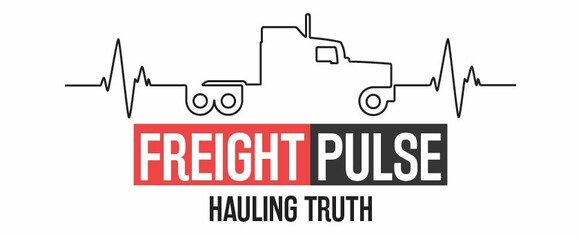The transportation sector is now stepping up to provide critical aid during the ongoing LA fire crisis, showcasing its pivotal role in disaster response and relief. Across various modes of trucking-freight services, public transit, ride-sharing platforms, and airlines-companies are mobilizing resources to support affected communities.
The company is offering free transportation and warehousing services for these donations, allowing donors to either drop off items at its downtown Los Angeles facility or arrange for WARP to pick them up.
From delivering emergency supplies like food, water, and medical equipment to facilitating evacuations and ensuring responders can reach impacted areas, trucking companies are demonstrating the power of coordinated efforts. Their contributions not only provide immediate relief but also highlight how logistics and mobility are essential to addressing large-scale emergencies effectively.

Logistics and Freight Companies
Companies transport essential items such as food, water, medical supplies, firefighting equipment, and shelter materials to affected areas. Freight companies with specialized vehicles (e.g., refrigerated trucks) ensure that perishable or temperature-sensitive goods are safely delivered. Many logistics firms offer warehouse spaces to store donated goods, firefighting gear, or other relief materials before they are dispatched. They also coordinate last-mile delivery to ensure supplies reach specific evacuation centers or distribution points.
Freight companies often provide trucks or vehicles to help evacuate residents, pets, and livestock from fire-affected zones. GPS and fleet management tools ensure efficient and safe deliveries even in challenging conditions.
Real-time tracking of supplies. Use of drones for surveying fire-damaged areas or delivering small emergency packages. Apps for evacuation updates and transportation coordination.
Collaboration with Relief Organizations
Logistics companies partner with agencies like the Red Cross, FEMA, and local government bodies to streamline the delivery process.
These partnerships reduce delays and maximize the impact of relief efforts.
Many logistics companies offer pro bono services during disasters. Employees and drivers often volunteer to deliver goods to high-risk areas.
Corporate Social Responsibility (CSR) refers to a company’s commitment to operate ethically, contribute to sustainable economic development, and improve the quality of life for employees, the local community, and society at large. It is a framework through which businesses balance profit-making with social and environmental responsibility.
Trucking companies play a pivotal role in disaster response by ensuring the swift and efficient movement of people, goods, and resources.
Mobilizing Resources – Trucking companies provide vehicles, aircraft, or ships to deploy first responders, medical teams, and other critical personnel to affected areas. They facilitate the delivery of heavy machinery, such as cranes, generators, and excavation tools, needed for rescue and recovery operations.
By working with government agencies and humanitarian organizations, they help prioritize and distribute resources where they are most needed.
Evacuating Residents – Trucking companies play a key role in creating and maintaining evacuation routes, ensuring they remain functional during emergencies. Some companies offer specialized vehicles to assist vulnerable populations, such as the elderly, disabled, or medically dependent individuals.
Delivering Essential Supplies – Transportation networks ensure the delivery of essential items like food, clean water, and hygiene supplies to disaster-hit regions. The timely transport of medicines, vaccines, and medical equipment is crucial to prevent secondary health crises.
Companies use adaptive strategies like alternative routes or specialized vehicles to overcome obstacles such as damaged roads, airports, or ports.
Enhancing Preparedness and Recovery – Trucking companies collaborate in pre-staging supplies and resources in disaster-prone areas for quicker response. They support the transportation of building materials and aid workers to rebuild infrastructure and communities. Advanced logistics technologies provide real-time updates on road conditions, delivery timelines, and relief progress.
The role of trucking companies in disaster response is indispensable. Their ability to coordinate, adapt, and respond swiftly often determines the effectiveness of relief efforts, directly impacting the survival and recovery of affected communities. Fostering partnerships between transportation firms, governments, and NGOs is essential for improving disaster readiness and resilience.
Read more about weather impact on trucking industry here.

